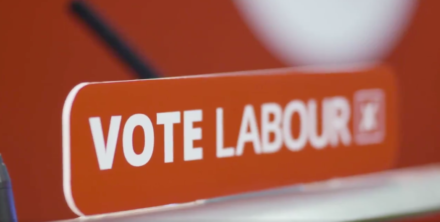
As another week of summer draws to a close, there is still no end in sight for Labour’s antisemitism rows. Following weeks of intense pressure, the party’s ruling body looks set to change its new code of conduct and adopt the full International Holocaust Remembrance Alliance definition of antisemitism, adding all 11 examples. Labour guidelines on what constitutes antisemitism would thus include “claiming that the existence of a state of Israel is a racist endeavour”, which the leadership has been hugely reluctant to accept. The u-turn is expected to take place at the next NEC meeting on 4th September. Though they had intended to clear outstanding disputes panel business and discuss the democracy review at that meeting, putting an end to the IHRA row means the matter will have to take first place on the agenda.
Len McCluskey, Unite’s general secretary and a close ally of Jeremy Corbyn, has made an intervention with a piece for HuffPost. Typically, he does not mince his words. McCluskey thoroughly rejects Chuka Umunna’s latest Independent column, which he calls “nonsense”, and says there is “no serious evidence” for institutional antisemitism within the Labour Party. (Umunna tweeted in response that it was “shameful” for the boss of his own trade union to attack him.) The Unite chief then says he is “at a loss to understand the motives of the leadership of the Jewish community”, which he accuses of “truculent hostility”. What could be easily missed amongst the fighting talk is McCluskey’s conclusion that all IHRA examples should now be agreed by the party.
This conclusion was always going to be reached eventually, and it’s been frustrating and distressing to many Labour members that the entire summer has been wasted on the matter. But McCluskey’s blog shows both that the IHRA row could have been resolved earlier, and that the antisemitism row overall cannot. There is a majority on the current NEC for passing IHRA now, yet new candidates on the Corbynite slate aren’t so sure. Huda Elmi, set to become a young, fresh face on the body following the NEC elections, made clear in an Independent article yesterday that she opposes adopting all 11 examples. She tweeted: “Thinking deleting 1 line from IHRA will appease everyone is a fantasy.” Other Corbynites have expressed similar thoughts, as many disagree with the move on an ethical basis (believing it would restrict the free speech of Palestinians) and contend it will not improve Labour’s political circumstances either.
The prevailing suspicion can be summed up crudely as ‘give them an inch, and they’ll take a mile’. A defensive attitude is still widely held on the left, despite Corbynites controlling almost every level of the party. (Perhaps this is due to an acute awareness of splits within the Labour left.) Last night, the hashtag #HodgeComparisons became a trending topic as people responded to Margaret Hodge’s Sky News interview. They were angered by the MP’s comparison between her own emotional reaction to Labour’s disciplinary action and the fear her family felt under Nazi Germany – a likeness described as “extreme and disconnected to reality” by a Labour spokesperson.
The 2016 coup has been neither forgiven nor forgotten. Pronouncements by those who have always opposed Corbyn, or who failed to stay loyal during the second leadership election, are rarely received in good faith. And that means as long as accusations of antisemitism are inextricably tied up with Corbynscepticism, the overarching row cannot come to an end under Corbyn. As with Brexit, opposition to the leadership’s position must come from the Corbynite left if it is to have a real impact.




More from LabourList
Antonia Romeo appointed to lead civil service as new Cabinet Secretary
‘If Labour is serious about upskilling Britain, it must mobilise local businesses’
Stella Tsantekidou column: ‘What are we to make of the Labour Together scandal?’